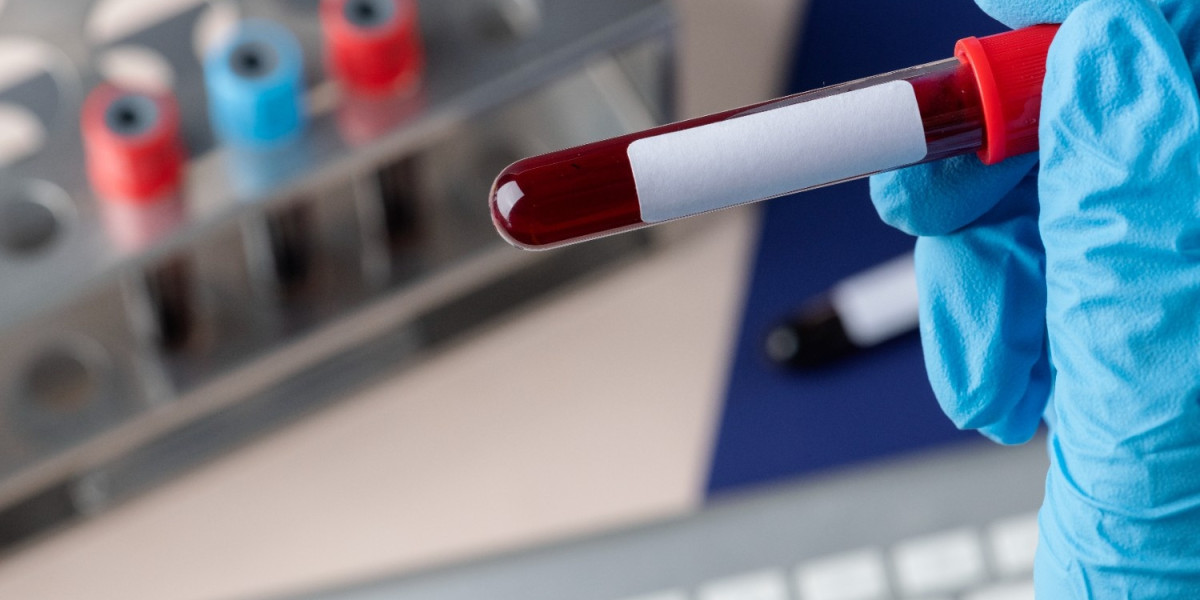Introduction
Fasting blood sugar tests are a fundamental part of maintaining overall health. As diabetes continues to be one of the most prevalent chronic conditions worldwide, this simple test can make a significant difference in managing and preventing it. For individuals, especially those at risk, regular fasting blood sugar testing is essential for catching early signs of abnormalities in glucose levels, which can prevent long-term complications. It is a straightforward test that offers crucial insights into how your body processes sugar and helps in making informed healthcare decisions.
What Is a Fasting Blood Sugar Test?
A fasting blood sugar test measures the level of glucose (sugar) in your blood after you have fasted for at least 8 hours. It is an essential diagnostic tool used to assess how well your body processes glucose, which is your main energy source. By measuring the blood sugar level after fasting, it helps doctors determine if your body is using insulin effectively or if there are signs of insulin resistance, a precursor to diabetes.
The test is often recommended as part of routine health checkups, especially for individuals who are at higher risk of developing type 2 diabetes. The results can indicate whether your blood sugar levels are normal, elevated, or dangerously high. Understanding these results early is crucial for managing or even preventing diabetes.
Why You Should Include Fasting Blood Sugar Tests in Your Routine Checkups
- Early Detection of Diabetes
- A fasting blood sugar test can detect signs of diabetes early, before symptoms become severe. When the test reveals higher-than-normal blood sugar levels, it allows for early intervention and lifestyle changes that can reverse or delay the progression to type 2 diabetes.
- Monitoring Overall Health
- Blood sugar levels can offer insights into your overall health. Abnormal readings might indicate issues such as prediabetes or insulin resistance, both of which can be managed or prevented with proper care and early treatment.
- Prevention of Complications
- Uncontrolled blood sugar levels over time can lead to serious health complications like kidney damage, nerve damage, heart disease, and vision problems. By regularly monitoring your blood sugar, you can take steps to keep it within a healthy range and prevent these complications.
- Personalized Health Care Plans
- Regular fasting blood sugar testing helps healthcare providers create personalized health care plans. Based on your blood sugar levels, your doctor may suggest specific dietary adjustments, exercise routines, or medications to improve your overall well-being.
How Fasting Blood Sugar Tests Help in Diabetes Management
Fasting blood sugar tests are not only helpful in the early detection of diabetes but also play a critical role in its management. For individuals already diagnosed with diabetes, this test is vital in assessing how well their treatment plan is working.
- Adjusting Medications
- Fasting blood sugar tests provide essential data for doctors to adjust medications. If a patient’s blood sugar levels are consistently high, it may indicate that the current treatment plan is ineffective. Conversely, low blood sugar readings may signal that the medication dose needs to be adjusted.
- Tracking Treatment Progress
- For those managing diabetes, regular fasting blood sugar tests allow healthcare professionals to track the effectiveness of lifestyle changes, dietary interventions, or exercise routines. This helps in fine-tuning the approach to maintaining healthy blood sugar levels.
- A Vital Tool for Insulin Users
- Individuals who require insulin injections benefit significantly from fasting blood sugar tests. The results help in determining the right amount of insulin needed, ensuring that the blood sugar levels remain stable throughout the day.
The Procedure: What to Expect During a Fasting Blood Sugar Test
A fasting blood sugar test is straightforward and involves minimal preparation.
- Preparation
- You will need to fast for at least 8 hours prior to the test. It is best to schedule the test in the morning to make fasting easier. You can drink water, but other drinks such as coffee or tea, especially those with sugar or cream, should be avoided.
- During the Test
- When you arrive at the diagnostic center, a healthcare professional will draw a small sample of blood, usually from a vein in your arm. The process is quick and generally painless.
- After the Test
- Once the blood sample is collected, you can resume your normal activities immediately. The results are typically available within a few hours to a day, depending on the diagnostic center.
- Understanding the Results
- The fasting blood sugar test results are measured in milligrams per deciliter (mg/dL). Normal levels typically range from 70 to 100 mg/dL. Levels between 100 and 125 mg/dL indicate prediabetes, while levels above 126 mg/dL are considered a sign of diabetes.
Who Should Get a Fasting Blood Sugar Test?
- Individuals Over 45
- If you are over the age of 45, it is advisable to get a fasting blood sugar test regularly, especially if you have a family history of diabetes. Risk factors such as age and genetics play a significant role in the development of type 2 diabetes.
- People With Risk Factors for Diabetes
- Those who are overweight, have high blood pressure, or have a sedentary lifestyle are at a higher risk of developing diabetes. People with a family history of the condition should also have regular fasting blood sugar tests to monitor their health.
- Pregnant Women
- Pregnant women are often screened for gestational diabetes, a temporary form of diabetes that occurs during pregnancy. A fasting blood sugar test is part of this screening process and helps ensure that both the mother and baby remain healthy.
What Do the Results Mean?
The interpretation of the fasting blood sugar test results is an essential part of determining your next steps in healthcare.
- Normal Range (70-99 mg/dL)
- If your result falls within the normal range, it means that your body is managing glucose effectively. Continue following a healthy lifestyle to maintain your health.
- Prediabetes (100-125 mg/dL)
- A result in this range indicates that your blood sugar levels are higher than normal but not high enough to be diagnosed with diabetes. Lifestyle changes, including improved diet and regular exercise, can help reverse this condition.
- Diabetes (126 mg/dL or higher)
- A result of 126 mg/dL or higher suggests that you may have diabetes. A second test may be required to confirm the diagnosis, after which your doctor will work with you to create a treatment plan.
Choosing the Right Diagnostic Center for Your Fasting Blood Sugar Test
When it comes to your health, choosing the right diagnostic center is crucial for accurate testing and results. Look for a center that:
- Has Certified and Experienced Staff
- Ensure that the healthcare professionals conducting the test are certified and trained to handle blood samples and interpret results accurately.
- Offers Timely and Reliable Results
- Quick turnaround time is essential for making informed decisions about your health. Choose a diagnostic center that provides results promptly and clearly explains what they mean.
- Uses Advanced Technology
- A good diagnostic center should use the latest equipment and technology to ensure that the test is performed accurately.
Conclusion
Fasting blood sugar tests play a pivotal role in the prevention and management of diabetes. By regularly monitoring blood sugar levels, individuals can detect potential problems early and make proactive decisions about their health. For those seeking reliable and accurate fasting blood sugar tests, AG Diagnostics offers professional and compassionate services. They prioritize patient care and provide clear, timely results, helping individuals stay on top of their health and prevent the onset of diabetes-related complications.






